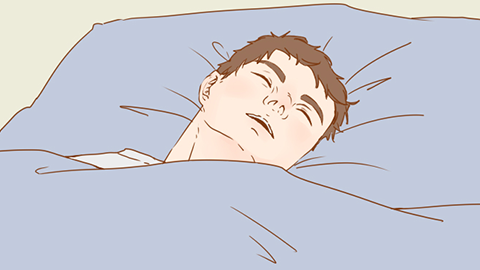Why do I always feel drowsy in the afternoon?
Generally, afternoon drowsiness may be caused by factors such as circadian rhythm influence, overeating during lunch, hypoglycemia, anemia, or hypothyroidism. Symptomatic management such as general treatment or medication may be needed. If physical discomfort occurs, prompt medical consultation and examination are recommended to avoid delaying treatment. Detailed explanations are as follows:

1. Circadian Rhythm Influence
The human body contains a biological clock that affects our sleep-wake cycle. During the afternoon, the biological clock may adjust our body into a more relaxed state, with declining physiological indicators such as body temperature and blood pressure, leading to a fatigued condition and drowsiness. It is recommended to maintain a regular sleep-wake schedule and take appropriate naps to help regulate the biological clock and reduce afternoon sleepiness.
2. Overeating During Lunch
Excessive lunch intake diverts large amounts of blood to the gastrointestinal tract for digestion, resulting in relatively insufficient blood supply to the brain, which may cause drowsiness accompanied by symptoms such as listlessness and stomach discomfort. It is recommended to eat moderate portions for lunch, avoid overeating, and choose light and easily digestible foods.
3. Hypoglycemia
Blood glucose is the main energy source for the brain. When blood sugar levels drop, the brain's metabolic activities are affected, leading to decreased nerve function and resulting in drowsiness, which may be accompanied by symptoms such as dizziness, fatigue, sweating, and palpitations. It is recommended to adjust your diet structure and ensure adequate carbohydrate intake at each meal. It is also recommended to use medications such as glucose sodium chloride injection, hydrocortisone tablets, and mannitol injection under medical guidance to alleviate symptoms.
4. Anemia
Deficiencies in nutrients such as iron, vitamin B12, or folic acid can lead to anemia, causing body tissues and organs to receive insufficient oxygen and resulting in fatigue and afternoon drowsiness, which may be accompanied by symptoms such as pallor, palpitations, and shortness of breath. It is recommended to use medications such as compound ferrous sulfate granules, iron dextran tablets, and iron sucrose injection under medical guidance for treatment.
5. Hypothyroidism
Hypothyroidism is mainly caused by reduced synthesis and secretion of thyroid hormones. When thyroid function is low, the metabolic rate decreases, energy consumption reduces, leading to fatigue and drowsiness, which may be accompanied by symptoms such as dry skin, memory loss, and depression. It is recommended to use medications such as levothyroxine sodium tablets, thyroid tablets, and alfacalcidol soft capsules under medical guidance to alleviate symptoms.
It is recommended to take a short nap at noon, with a nap duration of 20-30 minutes, which can relieve morning fatigue without affecting nighttime sleep.





